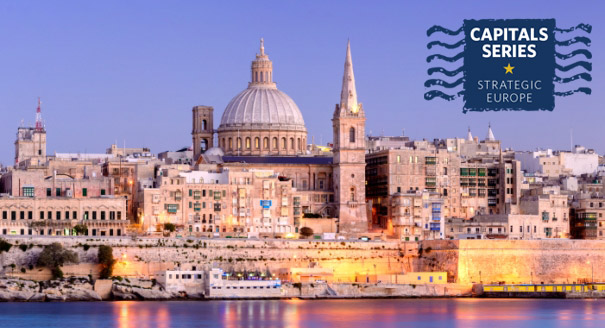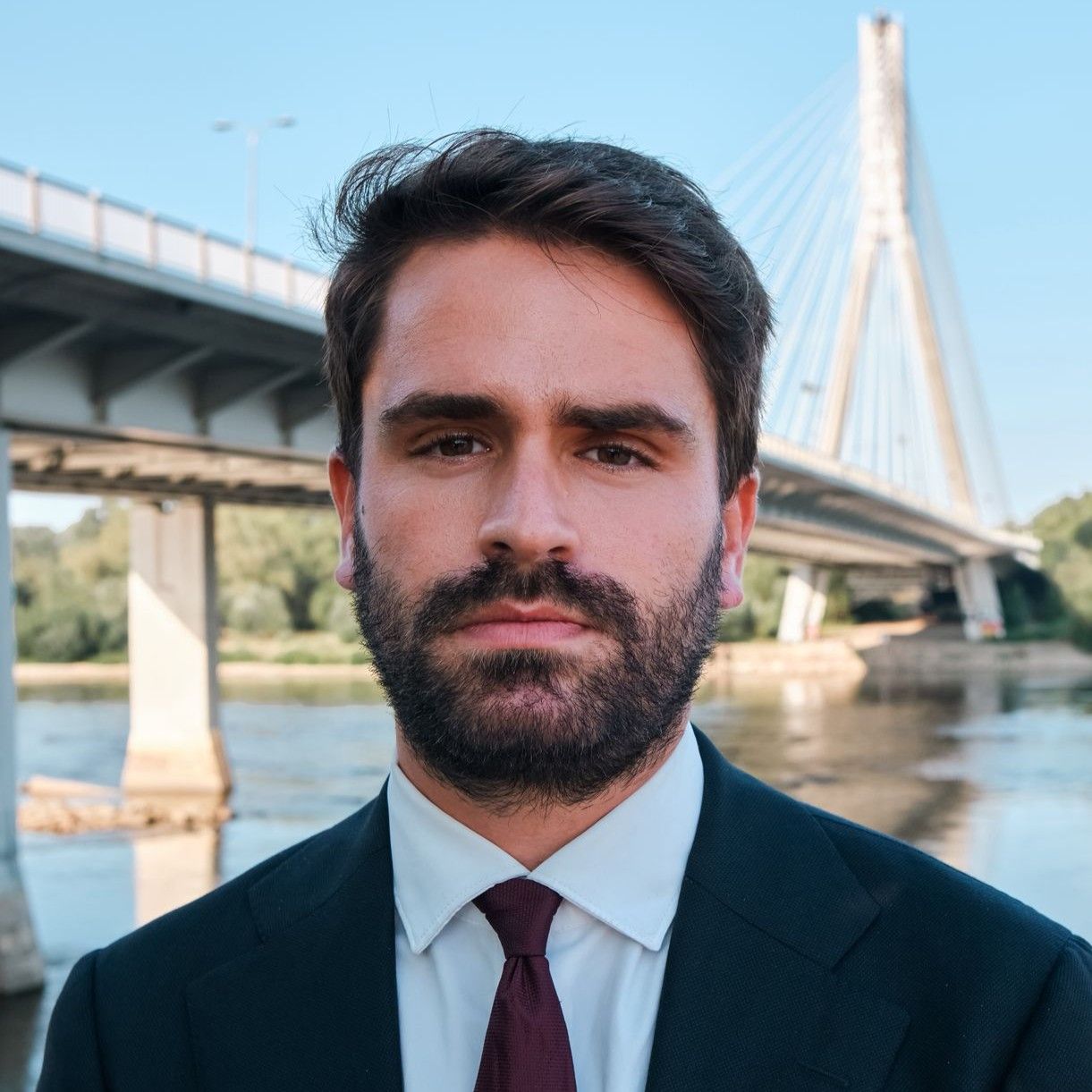As European leadership prepares for the sixteenth EU-India Summit, both sides must reckon with trade-offs in order to secure a mutually beneficial Free Trade Agreement.
Dinakar Peri
{
"authors": [
"Anthony Manduca"
],
"type": "commentary",
"blog": "Strategic Europe",
"centerAffiliationAll": "",
"centers": [
"Carnegie Endowment for International Peace",
"Carnegie Europe"
],
"collections": [],
"englishNewsletterAll": "",
"nonEnglishNewsletterAll": "",
"primaryCenter": "Carnegie Europe",
"programAffiliation": "",
"programs": [],
"projects": [],
"regions": [
"Europe",
"Western Europe"
],
"topics": [
"Foreign Policy",
"EU"
]
}
Malta’s small size prevents it from coming up with major foreign policy initiatives, but it is nevertheless keen to promote peace and stability in the Mediterranean.
Strategic Europe continues its series devoted to explaining the foreign and security policy ambitions of the 28 EU member states. We have asked our contributors from each capital to give a candid assessment of their country’s perception of security and strategy, with a ranking on a scale from 0 (the laggards) to 5 (the ambitious). This week, the spotlight is on Malta.
*
Malta tends to be a consensus seeker, not a leader, when it comes to European foreign policy. The country’s small size prevents it from coming up with major foreign policy initiatives within the European Union, but Valletta is nevertheless very keen on promoting peace and stability in the Mediterranean as well as dialogue and cooperation between the EU and the Arab world.

Malta’s location in the middle of the Mediterranean makes it an ideal interlocutor between the EU and its Southern neighbors. For example, Malta has focused a great deal on trying to bring about an end to the crisis in Libya. On a number of occasions, EU foreign ministers have discussed the situation in Libya at Malta’s insistence. The Maltese government’s main priority is to prevent its North African neighbor from becoming a failed state and a haven for Islamic jihadists.
Maltese Foreign Minister George Vella has often stressed that a political solution to the crisis in Libya is the only plausible option for a return to normality, and he has refused to take sides in Libya’s civil war. While recognizing the government that is based in Libya’s eastern city of Tobruk, Malta has kept open a dialogue with the parallel government in Tripoli run by the militias from Misrata. Valletta has urged the two sides to enter into talks aimed at ending the war.

When it comes to supporting military strikes or supplying arms to countries in conflict, Malta typically adopts a cautious stance. The country is a strong believer in multilateralism and international law. Having initially opposed lifting the arms embargo that the EU imposed on Syria in May 2011 following an upsurge in violent conflict, Malta was later persuaded, along with the rest of the bloc, to end the embargo. More recently, Valletta supports the U.S.-led military strikes against Islamic State jihadists in Iraq.
#Malta is fully committed to the EU's CFSP.Tweet This
Despite its military neutrality, Malta is fully committed to the EU’s Common Foreign and Security Policy. Maltese soldiers have taken part in a number of EU antipiracy missions off the coast of Somalia together with the Dutch navy. Considering that over half of the irregular migrants who land in Malta are Somalis, Malta has a direct interest in seeing Somalia return to stability.
On the question of irregular migration in general, successive Maltese governments have failed to convince their EU counterparts to adopt the concept of burden sharing. While the EU has provided Malta with funds to deal with this problem, member states have been reluctant to take in their share of refugees who end up in Malta. The burden was eased somewhat after Italy began its Mare Nostrum rescue operations following the tragic migrant shipwreck off the Italian island of Lampedusa in October 2013—although Rome’s decision to scale down these missions in November 2014 has caused some concern in Malta.
As for the crisis in Ukraine, Malta believes that the EU should continue its mediating and monitoring role and should insist that parties to the conflict in eastern Ukraine adhere to the February 12 ceasefire agreement. Despite a pledge by Malta’s Labour government in 2014 to strengthen ties with Moscow, Prime Minister Joseph Muscat made it clear that his country supported the imposition of sanctions against Russia for its behavior in Ukraine.
Malta has traditionally had good relations with China, and it is evident that Beijing sees Malta as an important foothold in the EU. The Labour government has been subjected to some criticism domestically for its close ties with China. A Chinese company, Shanghai Electric, has purchased 33 percent of the Maltese state energy company Enemalta as well as full control of one of its power stations.
The latest European Foreign Policy Scorecard published by the European Council on Foreign Relations categorized Malta as a “slacker”—together with Italy, Latvia, Portugal, and Romania—when it came to the promotion of human rights in China. Malta has said nothing about the pro-democracy demonstrations in Hong Kong in late 2014.
#Malta tends to be a consensus seeker on EU foreign policy.Tweet This
Malta believes both the EU and the United States stand to gain from a successful conclusion of the Transatlantic Trade and Investment Partnership (TTIP) negotiations as this would release the untapped economic potential of both sides. On the question of EU enlargement, Malta has always been in favor of the bloc’s expansion but seems to be in agreement with the overall sentiment in Brussels, namely that a pause is needed before the next expansion wave.
Located in the middle of the Mediterranean, Malta is ideally placed to contribute to the EU’s approach to its turbulent Southern neighborhood. And indeed, from the Libyan civil war to the Israeli-Palestinian conflict, Valletta has played a significant role on a number of issues that directly affect the EU’s security. That is not a bad record for the EU’s smallest member state.
Anthony Manduca is the Sunday executive and an international affairs analyst at the Times of Malta.
Carnegie does not take institutional positions on public policy issues; the views represented herein are those of the author(s) and do not necessarily reflect the views of Carnegie, its staff, or its trustees.
As European leadership prepares for the sixteenth EU-India Summit, both sides must reckon with trade-offs in order to secure a mutually beneficial Free Trade Agreement.

Dinakar Peri
The hyper-personalized new version of global sphere-of-influence politics that Donald Trump wants will fail, as it did for Russia. In the meantime, Europe must still deal with a disruptive former ally determined to break the rules.

Thomas de Waal
2026 has started in crisis, as the actions of unpredictable leaders shape an increasingly volatile global environment. To shift from crisis response to strategic foresight, what under-the-radar issues should the EU prepare for in the coming year?

Thomas de Waal
A renewal of relations between France and Turkey is vital to strengthen European strategic autonomy. To make this détente a reality, Paris and Ankara should move beyond personal friction and jointly engage with questions of Black Sea security.

Romain Le Quiniou
Europe is designing a new model of collective security that no longer relies on the United States. For this effort to succeed, solidarity between member states that have different threat perceptions is vital.

Erik Jones